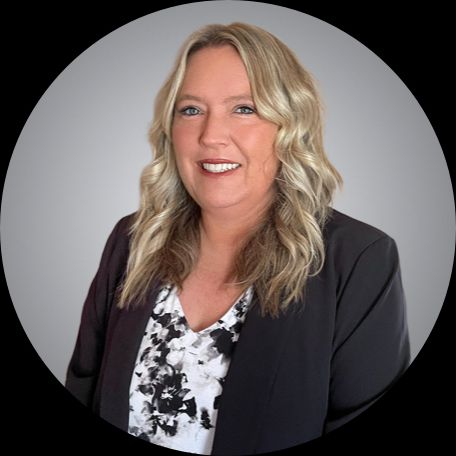How to Find Alzheimer's Support Groups
Explore ways to find Alzheimer’s support groups. Seniorly can help with suggestions on how to find support groups near you.

Alzheimer’s is a progressive, degenerative brain disorder that causes memory loss and other intellectual abilities to decline. At first, it may only be short-term events like forgetting what you had for lunch or where you parked your car, but as the disease progresses, more serious problems can develop.
Since the symptoms of Alzheimer’s disease are progressive they get worse over time. In order to slow the progression and effect on one's mental state, it is necessary that treatment be ongoing. It is important to have a support network for those people living with Alzheimer’s and for the caregivers that are helping those going through it.
Alzheimer's is a disease that affects many people, especially as the world population ages. Alzheimer's support groups provide a place for family members and caregivers of those with Alzheimer's to talk about their experiences. We will explore how these groups can help you or someone you love who suffers from dementia.
What is an Alzheimer's support group?
The focus of these groups is to provide a supportive environment for people with Alzheimer's and their caregivers. Members share information, advice, and coping strategies, all while offering each other emotional support. This can be incredibly helpful for those who are feeling overwhelmed and alone.
Many groups offer specialized care for individuals with younger-onset and early-stage Alzheimer’s, as well as adult caregivers. Early-onset Alzheimer’s disease (also known as younger-onset Alzheimer’s disease) is a rare form of illness that affects people who are under 65 years old. Due to the COVID-19 pandemic, many support groups now have virtual options via phone, Zoom, webinars, or video conferencing to keep members safe.
The benefits of attending an Alzheimer’s support group
Alzheimer’s groups are there for the needs of those with the disease and for their caregivers. These groups offer emotional support as well as practical advice on things like handling medication and communicating with doctors. You can also find out about new treatments and therapies from other group members. Meeting others in a similar situation may help you feel less alone in your journey. Overall, a support group can provide hope and encouragement during what can be a very difficult time.
If you are caring for someone with Alzheimer's disease, or if you have been recently diagnosed with the condition, a local Alzheimer's support group can be a great resource. These groups offer information, education, and emotional support to caregivers and patients living with Alzheimer's.
Attending an Alzheimer's support group is a great way for patients living with the condition to connect with others going through the same things they are. These groups can help patients feel less isolated, and provide emotional support during the difficult journey of Alzheimer's disease.
How to find Alzheimer’s online support groups
It is important to remember that everyone will face different challenges with this disease, but there are always people who have been through similar experiences that you may benefit from meeting. From local groups to organizations in major cities, there is a support group for everyone.
When it comes to finding a support group, there are many great resources in your area. The Alzheimer's Association website has a great tool that allows you to search for local support groups by zip code. You can also ask your doctor, social worker, local psychologist, therapist, or other care providers if they are aware of any local support groups.
Many large cities have multiple Alzheimer's support groups to choose from. You may want to attend more than one support group in order to find the best fit for you and your loved one.
Once you've found an Alzheimer's support group, make sure that you go prepared. Depending on the group, you may want to think about bringing your loved one with Alzheimer's or not bringing them at all. There is no right answer for this question; it will depend on how comfortable you are and what stage of the disease your loved one currently is at.
When attending an Alzheimer’s support group, be ready to share your experiences and feelings. It can be very helpful to talk to others who understand what you are going through. Support groups also offer a place where you can learn about the latest treatments, resources, and strategies for caring for someone with Alzheimer's disease.
If you are feeling overwhelmed or lost, don't hesitate to reach out to the support group. You can ask how to best support your loved one with Alzheimer's disease, what you should say or not say to them, and who they recommend for home care services in your area.
Some groups focus on providing information about the disease, while others offer more of an emotional support network for caregivers. It is important to find a group that matches your needs.
Alzheimer and dementia support groups
With Alzheimer's disease, finding the right support group is crucial to your well-being. You have many variables you need to consider when looking at these communities. Some things to consider are where the support groups are held; either online or in-person or even how long each session lasts.
There is no one-size-fits-all approach to living with dementia, but the more time spent on this journey and building relationships will not only help your loved one with Alzheimer’s but you as well as you take care of your loved one and yourself.
There isn’t a correct answer about what group will work best for you. You just have to join the groups that serve your needs the best. The following is a list of Alzheimer’s support groups.
The Alzheimer’s Association
The Alzheimer’s Association has support groups both in-person and online. They also offer virtual resources such as a message board for those with Alzheimer's and their caregivers.
The Alzheimer’s Association support groups are free of charge. Local chapters can be found by using their free online search tool. You can also call their Helpline that runs 24/7 at 800-272-3900.
The Alzheimer’s Foundation of America (AFA)
The Alzheimer’s Foundation of America is open seven days a week and staffed by licensed social workers who are trained in dementia care. AFA’s Helpline is there to provide support to professional and family caregivers, individuals living with the disease, and anyone who just needs helpful resources about Alzheimer’s.
The Helpline can be reached by phone at 866-232-8484, webchat (www.alzfdn.org), and text message at 646-586-5283. The webchat and text message features are also translatable for non-English speakers, allowing individuals in more than 90 other languages to access support in their primary language.
Well Spouse Association
The Well Spouse Association is a nonprofit organization that is a caregiver support group. It supports the wives, husbands, and partners of the chronically ill or disabled. They offer free services to help spouses and they work to make health care professionals and the general public aware of the difficulties dementia caregivers face every day. In-person support groups are offered by each state, while telephone-based support is also offered.
Dementia Mentors
Dementia Mentors is a support group that is structured to cover people with all types of dementia including Alzheimer’s and Lewy body dementia (LBD). The website offers a free mentorship program for people with the disease. The mentors are all volunteers who have dementia themselves.
Memory Cafe
Mild Cognitive Impairment (MCI) is a memory impairment that is an early stage of memory loss. MCI is a cognitive problem that affects the way someone thinks and remembers. There is not one single factor that causes this decline, but many things can contribute to it such as depression, diabetes, and stroke.
A Memory Cafe is an organization for individuals with Alzheimer’s Disease or any other form of dementia, or other brain disorders. The organization also includes caregiver support in their meetings. Additionally, it is helpful for people with all forms of MCI.
Each Memory Cafe has various meetings that can be offered as an online group or in-person meetings. These meetings all have different focuses and formats. Some memory cafes meetings are activity-based while others provide education. Each memory cafe provides a place for mutual support and social interaction. Check the website for more information about meeting offerings.
UCSF Memory and Aging Center Clinic
The UCSF Memory and Aging Center Clinic in San Francisco is a local community that has been created for those diagnosed with young-onset Alzheimer’s disease and for their caregivers. It is free to join and participate in but, in order to qualify you must be in the mild or early stages of Alzheimer’s disease, have been diagnosed before age 65, or have a significant other or caregiver who will participate in the group. The group has monthly support groups that meet bi-monthly and offer support and education for Alzheimer’s disease.
Works consulted:
“Young-onset Alzheimer's: When symptoms begin before age 65.” Mayo Clinic. Accessed December 27, 2021. https://www.mayoclinic.org/diseases-conditions/alzheimers-disease/in-depth/alzheimers/art-20048356
Brandon, Emily. “The 10 Most Rapidly Aging States.” U.S. News. June 25, 2018. https://money.usnews.com/money/retirement/aging/slideshows/most-rapidly-aging-states
Lydia Bruno boasts over ten years of technical writing, having been a compassionate caregiver for over five years for seniors, and working within senior care facilities with a high level of dedication, care, and compassion for older adults and their families. When Lydia isn’t writing she is spending time with her husband and four daughters or enjoying time in her garden.
To learn more about Seniorly's editorial guidelines, click here.
Sign up for our Healthy Aging Handbook
Seniorly’s Senior Living experts created a comprehensive handbook to help people age happily while ensuring they love where they live. Enter your email address below to receive your copy and learn more about Healthy Aging and Senior Living.*
*By submitting your email address above, you consent to receive occasional email communications from Seniorly, including educational content and tips, newsletters, and other relevant updates and offerings. You can unsubscribe at any time and we will never sell or distribute your email address to a third party. You can view our Privacy Policy here.
